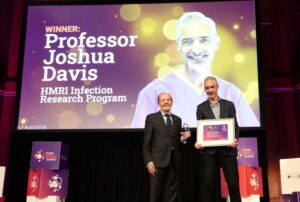
October 24 marks World Polio Day, a day dedicated to raising awareness about the fight against poliomyelitis. The vaccination campaign against this debilitating disease stands as one of the most significant achievements in preventive medicine, credited with preventing millions of cases of paralysis and saving countless lives. Despite these successes, a recent study published in the Deutsches Ärzteblatt warns that vaccination efforts must not wane if polio is to be completely eradicated.
The study, titled “Successes and Obstacles in the Late Phase of the Global Polio Eradication Initiative,” highlights the importance of continued vigilance. Conducted by researchers from Bielefeld and Heidelberg, among others, it provides a comprehensive overview of the global program initiated by the World Health Organization (WHO) in 1988. Since its inception, the number of polio cases has been reduced by 99.99 percent, yet the disease remains a global threat.
Why Polio Has Not Disappeared
Poliomyelitis, commonly known as polio, is caused by highly infectious viruses that predominantly affect children. While 90 to 95 percent of infections are asymptomatic, a small percentage result in permanent paralysis, particularly of the legs. In severe cases, the disease can be fatal due to paralysis of the respiratory muscles.
Although large regions of the world are now considered polio-free, wild polioviruses continue to circulate in Pakistan and Afghanistan. Compounding the issue are mutations of vaccine-derived viruses, which can spark new outbreaks in countries with low immunization rates. These mutated viruses, due to international travel, have recently been detected in wastewater samples in several European cities, including Germany.
Funding Gaps and Vaccine Fatigue
The announcement comes as global health organizations face significant funding challenges. According to the study, financial shortfalls threaten to undermine the progress made over the last few decades. Additionally, vaccine fatigue—a growing reluctance to vaccinate due to perceived eradication of the disease—poses a significant risk.
Professor Dr. Oliver Razum of Bielefeld University, the senior author of the study, emphasized the need for sustained efforts. “Even in Germany, we must continue vaccinating against polio. Complete eradication of the disease will not be achieved anytime soon,” he stated.
“Containing polio is one of the greatest achievements of public health — that is, protecting the health of entire populations.” — Professor Dr. Oliver Razum
The Path Forward
The move represents a critical juncture in the global fight against polio. While the reduction in cases is a testament to the effectiveness of the vaccination campaign, the emergence of new challenges necessitates a renewed commitment. Experts argue that maintaining high immunization rates is essential to prevent the resurgence of the disease.
Meanwhile, the global health community is urged to address the financial and logistical hurdles that threaten to derail the eradication efforts. Continued international cooperation and investment in vaccination programs are vital to overcoming these obstacles.
As World Polio Day serves as a reminder of the progress made, it also underscores the work that remains. The study’s findings highlight the precarious nature of the current situation and the need for unwavering dedication to the cause.
By the Numbers: Since 1988, polio cases have been reduced by 99.99 percent, yet the disease still poses a threat globally.
Looking ahead, the commitment to eradicating polio must remain steadfast. The implications of a potential resurgence are too severe to ignore, and the global community must act decisively to ensure that the gains achieved are not lost.





